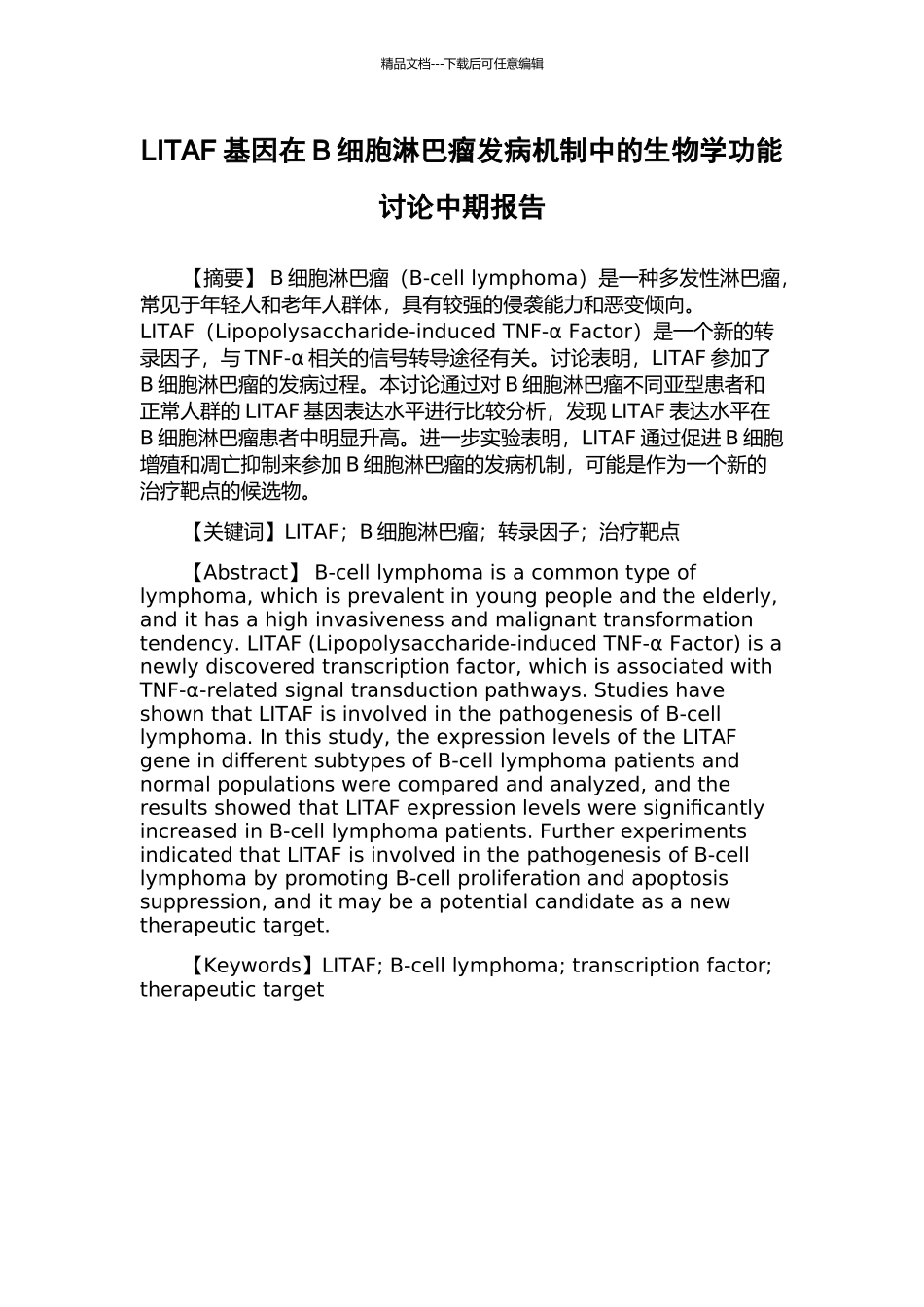精品文档---下载后可任意编辑LITAF 基因在 B 细胞淋巴瘤发病机制中的生物学功能讨论中期报告【摘要】 B 细胞淋巴瘤(B-cell lymphoma)是一种多发性淋巴瘤,常见于年轻人和老年人群体,具有较强的侵袭能力和恶变倾向。LITAF(Lipopolysaccharide-induced TNF-α Factor)是一个新的转录因子,与 TNF-α 相关的信号转导途径有关。讨论表明,LITAF 参加了B 细胞淋巴瘤的发病过程。本讨论通过对 B 细胞淋巴瘤不同亚型患者和正常人群的 LITAF 基因表达水平进行比较分析,发现 LITAF 表达水平在B 细胞淋巴瘤患者中明显升高。进一步实验表明,LITAF 通过促进 B 细胞增殖和凋亡抑制来参加 B 细胞淋巴瘤的发病机制,可能是作为一个新的治疗靶点的候选物。【关键词】LITAF;B 细胞淋巴瘤;转录因子;治疗靶点【Abstract】 B-cell lymphoma is a common type of lymphoma, which is prevalent in young people and the elderly, and it has a high invasiveness and malignant transformation tendency. LITAF (Lipopolysaccharide-induced TNF-α Factor) is a newly discovered transcription factor, which is associated with TNF-α-related signal transduction pathways. Studies have shown that LITAF is involved in the pathogenesis of B-cell lymphoma. In this study, the expression levels of the LITAF gene in different subtypes of B-cell lymphoma patients and normal populations were compared and analyzed, and the results showed that LITAF expression levels were significantly increased in B-cell lymphoma patients. Further experiments indicated that LITAF is involved in the pathogenesis of B-cell lymphoma by promoting B-cell proliferation and apoptosis suppression, and it may be a potential candidate as a new therapeutic target.【Keywords】LITAF; B-cell lymphoma; transcription factor; therapeutic target
